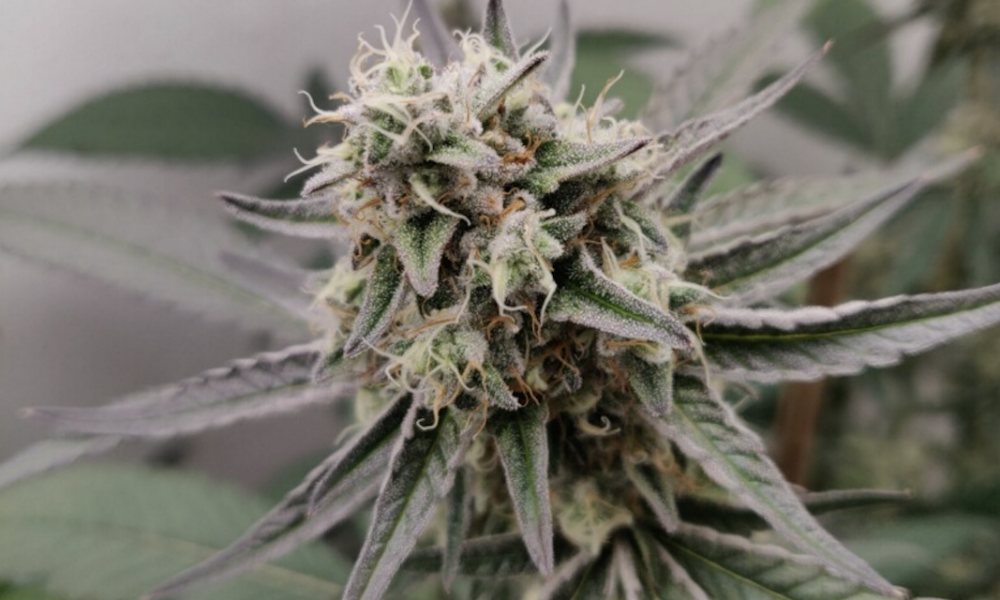The mayor of Washington, D.C. has signed a bill that will allow medical marijuana patients to submit products directly to labs for testing—and also let regulators issue temporary cannabis patient registrations to non-residents that last for up to a year.
Mayor Muriel Bowser (D) approved the legislation from D.C. Council Chairman Phil Mendelson (D) and Councilmember Kenyan McDuffie (D) on Wednesday. It will additionally expand who can qualify as social equity cannabis license applicants.
The non-resident temporary registration provisions will build on the District’s evolving medical marijuana program, which has been repeatedly amended as lawmakers continue to face a congressional blockade that prevents them from enacting a regulated adult-use cannabis market even though voters approved broad legalization in 2014.
Last year, a law took effect allowing residents to self-certify as medical marijuana patients, leading to a surge in registrations. That was followed up with a non-resident self-certification reform.
Non-residents will be able to apply for a registration that would be effective for up to one year, the new bill says. The prior policy on the non-resident self-certification only allowed for 30-day registrations.
The measure’s cannabis testing components are also novel. While state cannabis laws generally mandate that marijuana products are tested for safety and labeling purposes as part of the process of bringing them to store shelves, the new reform will give individual patients in the nations capital the ability to submit samples of what they buy for testing, as long as they can prove they’re registered and that the products came from a licensed retailers.
Further, cannabis cultivators and manufacturers will be able to submit their own samples “for purposes of quality assurance or research and development.”
The legislation will additionally allow regulators at the Alcoholic Beverage & Cannabis Administration (ABCA) to issue conditional testing facility licenses and waive the application fee.
Under the new law, the definition of social equity is being revised and expanded. It makes it so a person will qualify for a social equity marijuana business license if their non-parent legal guardian, grandparent or sibling has been arrested, convicted or incarcerated for a drug offense.
Previously, the eligibility requirement said that a D.C. resident needed to meet at least two of three criterion, including one on being “married to, in a civil union with, has a child with, is the child of a person, or has a non-parent legal guardian, who is or has been incarcerated for a cannabis or drug related offense.”
—
Marijuana Moment is tracking more than 1,000 cannabis, psychedelics and drug policy bills in state legislatures and Congress this year. Patreon supporters pledging at least $25/month get access to our interactive maps, charts and hearing calendar so they don’t miss any developments.
Learn more about our marijuana bill tracker and become a supporter on Patreon to get access.
—
The effect of all these reforms is that the District is effectively circumventing a congressional spending bill rider that blocks D.C. from using its local tax dollars to implement a system of regulated, adult-use cannabis sales by gradually increasing access under the city’s current medical marijuana program.
This summer, House and Senate appropriators again approved large-scale appropriations bills that include the same rider language.
President Joe Biden’s Fiscal Year 2024 budget request that he released in March also maintained the D.C. rider for the third year in a row.
Meanwhile, a D.C. law went into effect in July that bans most private workplaces from firing or otherwise punishing employees for marijuana use during non-work hours.
The reform is designed to expand on a previous measure lawmakers approved to protect local government employees against workplace discrimination due to their use of medical cannabis by covering workers in private businesses.
A coalition of local, state and national advocacy organizations asked the U.S. attorney general last year to formally adopt a policy of non-enforcement to allow the District to legalize marijuana sales even in light of the ongoing congressional ban.
A poll released last year found that D.C. voters strongly support marijuana legalization and oppose a crackdown on the cannabis “gifting” market that’s emerged in the absence of regulated sales.
Climate Workers Couldn’t Be Fired Over Marijuana In Legal States Under Newly Refiled Congressional Bill
Photo courtesy of Mike Latimer.
Read the full article here









